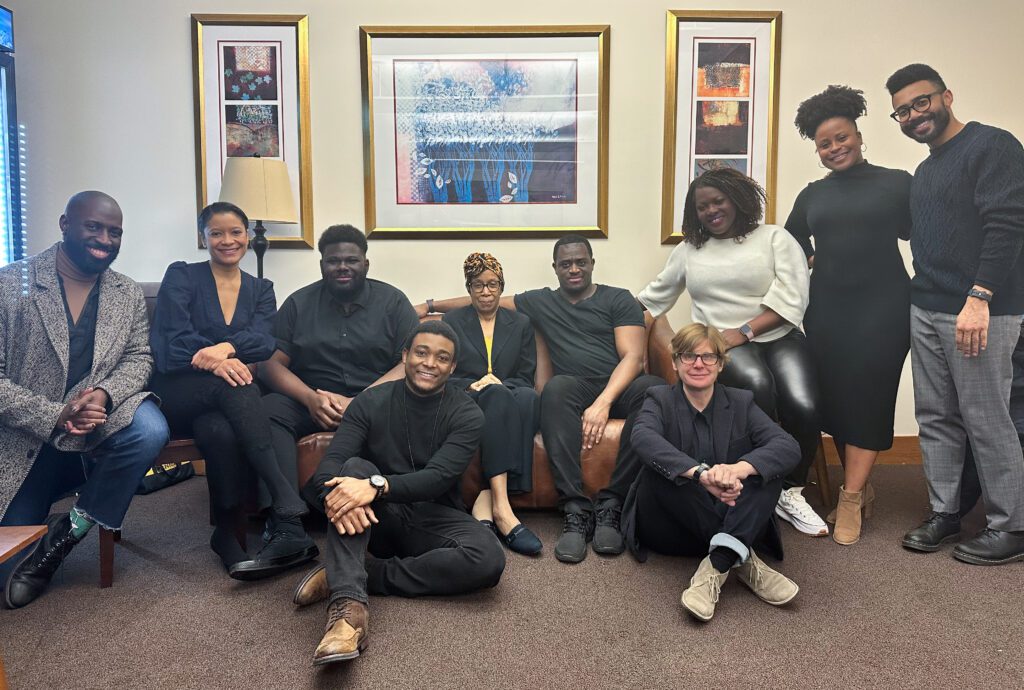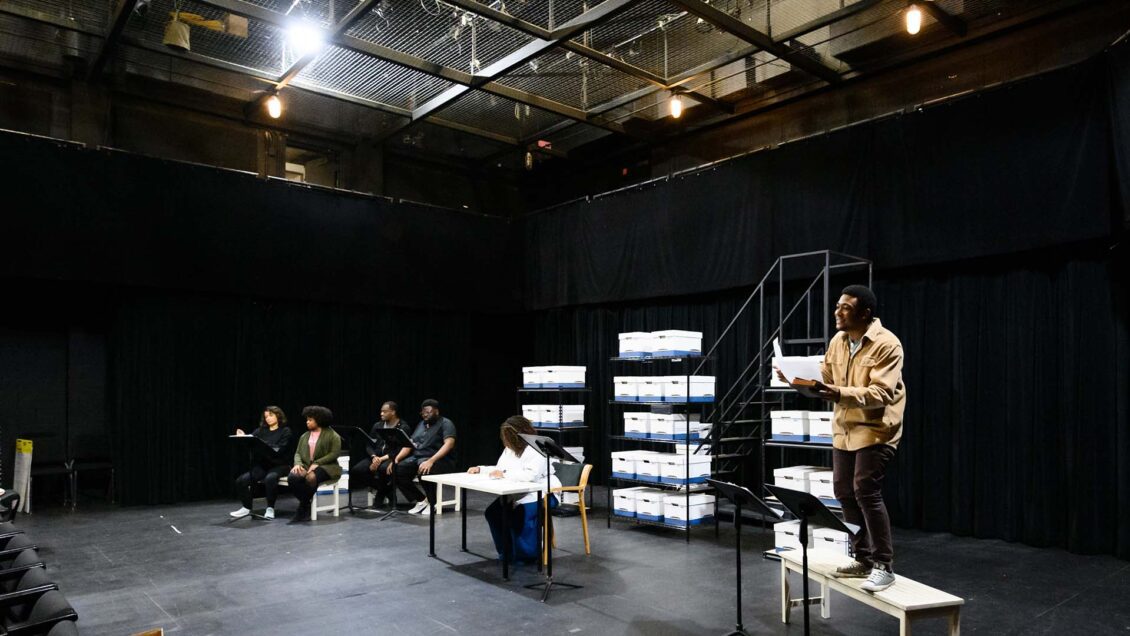60 years after Harvey Gantt made history as the first Black student at Clemson College, his story—and that of other African Americans in Clemson history—came to life on stage at the Brooks Center for the Performing Arts’ Bellamy Theatre.
January 28-29, an ensemble of actors from New York City presented three work-in-progress readings of “Call My Name: The Play,” written by Clemson University Professor Rhondda Thomas in collaboration with the Tectonic Theater Project. The play is based on Thomas’s book, “Call My Name, Clemson: Documenting the Black Experience at an American University,” and on her ongoing Call My Name research project.
“It was most rewarding to see the humanity of Black people in Clemson history presented so powerfully on the stage by an all-Black ensemble of professional actors,” Thomas said. “They are people, not property, or a convict, or a historic figure, whose stories must be shared with compassion and care.”
The play relates Black history at Clemson as it is uncovered by “the Archivist,” a character based on Thomas.
“What I discovered during the process was that the work of the Archivist is so much more dynamic and multifaceted than we would initially assume,” said Kimberly Fairbanks, an actor and devising artist for Tectonic Theater who worked to develop the role. “In addition to spending long hours researching in archives, the Archivist is also a detective, a guardian, a confidant, a torchbearer and a protector; piecing together the lives of the unvoiced, connecting them with their loved ones—past and present—while taking great care to honor their truth, their voice and their story.”

The play’s set was simple: rack upon rack of banker’s boxes, a desk, benches, and a few rolling racks of dusty library books. As the Archivist searches for the names of the people enslaved on the land that would become Clemson’s campus, their voices begin to be heard.
“An actor opens an archive box and a story emerges,” said Leigh Fondakowski, Tectonic’s project mentor and dramaturg. “The archive space transforms into a church or a courtroom. So the theatrical vocabulary is simple but the space is continually transforming and surprising the audience.”
They are people, not property, or a convict, or a historic figure, whose stories must be shared with compassion and care.
Rhondda Thomas, Calhoun Lemon Professor of Literature
Tectonic Theater Project distills reams of Thomas’s research into discrete scenes through a collaborative process called “Moment Work,” which requires input from Thomas, the directors, the actors, and even community partners.
“At first, I think that Moment Work revealed how massive this story really is,” said Dmitri Moïse, co-director. Tectonic has used Moment Work to adapt many non-fiction works for the stage, including “Gross Indecency: the Three Trials of Oscar Wilde,” and “The Laramie Project.” The Call My Name project explores seven generations of African Americans in Clemson history. So far, the stories of three generations have been developed for the stage.
“As we deepened the work, we started to hone in on what resonated most for us in addition to the historical moments we felt we could successfully theatricalize,” Moïse said.

The staged reading centers on the Archivist’s quest to uncover the stories of three people: Issey, an enslaved girl at Fort Hill plantation; Wade Foster, a 13-year-old convicted laborer assigned to work at Clemson College; and Harvey Gantt, the first Black student to attend and graduate from Clemson after winning a class-action lawsuit.
“Ultimately, the challenge of portraying real people is the reality of the varying ways and multiple interpretations of singular events and how the public’s interpretation might clash with the experiences of those involved in the actual events,” explained co-director jeremy o’brian.
The performances at Clemson on January 28-29 represented a significant benchmark in the progress of the production, but much work remains.
“The next steps are determining how to represent all seven generations of Call My Name theatrically, specifically how many plays will be developed, as well as to raise funds through grants and gifts for the full production,” Thomas said. Friends of Call My Name who are interested in supporting the production can donate online by clicking here. Be sure to indicate the gift is for the Call My Name play.
The production was made possible with support from Clemson’s College of Architecture, Arts and Humanities; the Office of the Provost; the Gantt Multicultural Center; the Department of Performing Arts; the Brooks Center for the Performing Arts and the Call My Name Coalition.
Get in touch and we will connect you with the author or another expert.
Or email us at news@clemson.edu

